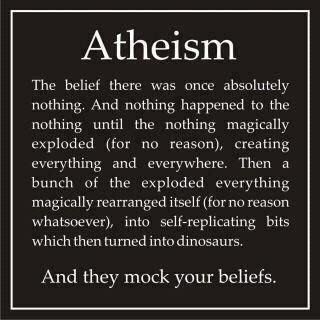Actually I feel I must interrupt here to point out that saying we KNOW something is wrong when it comes to science. We have a pretty good idea, however a discovery tomorrow could prove this idea to be wrong. It happens all the time with science. After all, at one point we KNEW the earth was flat.
The flat earth thing is a a myth actually, mankind have been sailing boats for millenia and knew the earth wasn't flat.
http://bede.org.uk/flatearth.htm

